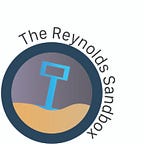Kurds of Reno, Finding a New Life in Yet Another Country
Yulia Rajeh and Chris Darche learn about the Kurdish community in Northern Nevada which has been growing since 2016 when the Northern Nevada International Center started relocating Syrian refugees here.
“Here (in the US) I felt safe for the first time in my whole life. Here we have been treated as humans,” Aisha Ali Yaqub explains, a Syrian-Kurdish refugee living in Reno.
Aisha, Mohamad, and their four children were some of the first Kurds to arrive in Reno in 2016. They were relocated from Iraq, where they had lived after the war began in Syria. In their home country, they were not allowed to have passports or identity cards. When they arrived in the United States, the Yaqub family only had one identification paper from a resettlement agency. In legal terms, the Yaqub family didn’t exist in their home country and their children did not have any legal rights.
“Up until now, I have not been able to gain Syrian citizenship. I am prohibited from being a Syrian citizen,” Mohamad said bitterly. “For example, my wife, Aisha, is also Kurdish, and she has citizenship. I don’t know why the Syrian government put these restrictions on us. I was born in Syria, studied, and grew up there. I do not belong to any political group and yet I cannot obtain citizenship in my home country. One reason we decided to relocate was to help my daughters become American citizens. In Syria, they could not be Syrian citizens which means they were not allowed to study in a Syrian high school and acquire their diplomas. They were only allowed to study up to seventh grade. It is painful to understand that you are not welcome in your home country.”
Aisha said they always felt like strangers in Syria, despite it being their native country.
“A native country should be like a mother who loves and accepts her children,” she said. “However, our country rejected us. Fortunately, when we arrived in Reno, we felt like the American community was extremely welcoming. We felt like we belonged here. After integrating into American culture, we learned what it means to be an individual. We felt love and attention, and understood the meaning of the word ‘humanity’. Here my children can study until they finish their education and my husband is free to work wherever he wants without being afraid to say that he is Kurdish.”
In 2021, the Yaqub family became United States citizens. Now, they are no longer people without a country to call home.
Since 2016, the Northern Nevada International Center (NNIC), a resettlement agency located in Reno, has relocated over a dozen Kurdish families. Most of these families came from Syria to escape the ongoing conflict.
The Kurds are an Indo-European ethnic group. The mountainous regions of present-day Iraq, Iran, Syria, and Turkey are their historical homelands. In total, about 30 million Kurds live in this region. The Kurds are the fourth largest ethnic group in the Middle East and the largest in the world without a national state.
Between 1.5 and 2 million Kurds (9% of the total population of Syria) live in northeastern Syria. But under the still ruling Ba’ath party, which adheres to the ideology of Arab nationalism, Kurds were forbidden to speak their own language, and hundreds of thousands of people were deprived of citizenship.
Moreover, the Syrian regime even limited the celebration of Nowruz, an annual Kurdish holiday. During the conflict in Syria, a hundred thousand Kurdish people were resettled throughout the world, mostly in Turkey.
Shereen and her family arrived in Reno in September 2022. Previously, they had lived in Turkey, to avoid the Syrian conflict. Reno became their second relocating point and that is where they met their close relatives from their hometown of Afrin, a city in Northern Syria.
“We felt safe in Reno, especially after we met Zakaria and Nabhar. We didn’t know them before, but it turned out that we are from the same family in Afrin,” Shereen said.
Now the Kurdish families constantly see each other and celebrate Kurdish holidays together. The Kurdish holiday of Nowruz recently occurred on March 21st, 2022 and this year the celebration took place in San Diego, California. On March 21, the majority of the Kurdish people who live in the United States went to San Diego to celebrate Nowruz. During the celebration, men and women wore traditional clothes as well as sang and danced to traditional Kurdish music.
“The difference between the US and our country is that here we celebrate Nowruz during the weekend,” Zakaria said. “This is because March 21 could fall on a workday. In our county, March 21 is an official holiday because it is Mother’s Day and all Arab countries celebrate Mother’s Day on March 21.”
Zakaria went on to explain in more detail the meaning of the Nowruz celebration.
“Nowruz in Kurdish means ‘a new day’. Once upon a time, Kurds were oppressed by an evil king,” he said. “There was one blacksmith named Kawa who lived among the Kurdish people and he decided to kill that king. He told the people that he was going to enter the king’s castle and try to kill him. He said that if he is successful, he will light a fire on the top of the king’s castle. This way everybody will know that a new day is coming. Kawa successfully killed the king and lit a fire on the top of his castle. This is why Kurdish people light candles and fire outside their homes on March 21. It is to celebrate the coming of a new day.”
Currently, there are seven Kurdish families living in Reno and they are all Syrian refugees. These families were helped by the Northern Nevada International Center and three of the seven have obtained American citizenship.
